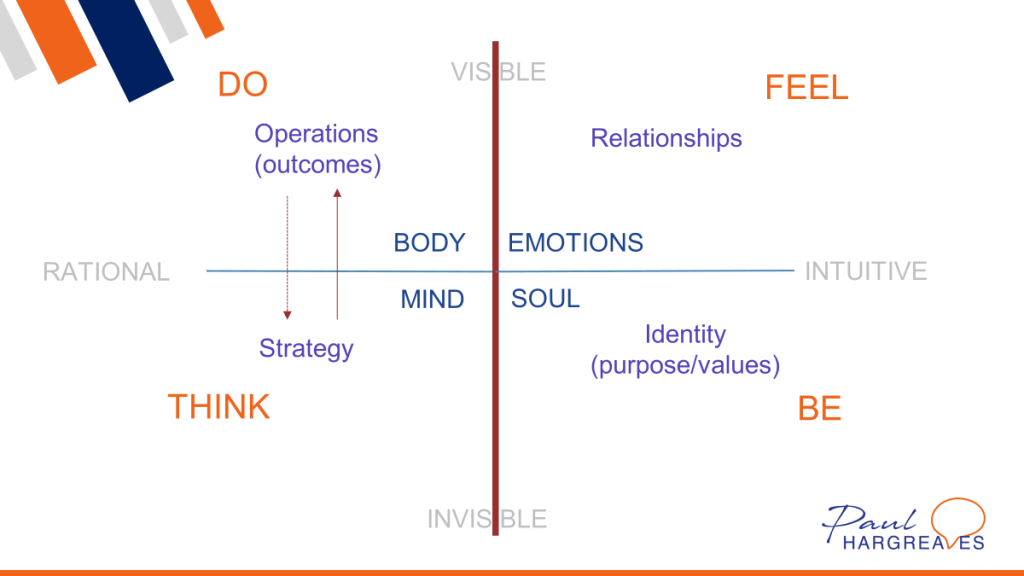We are often happy to have the mind and body of our people functioning to increase productivity but as leaders are we welcoming their soul and emotions too?
Many businesses in the 20th century actively encouraged their people to leave most of themselves at home. Personal upset, difficulties and trauma was to be left at the door and they were to put on a work mask. Thankfully now for many businesses those days are long gone, although some of the antiquated language remains. Why do we still have HR departments? Surely our people are more valuable than to be called ‘resources’?
In this short article I will give you some tips here on how we at my company, Cotswold Fayre, have created a place where heart and purpose is real. And yes, it can be messy at times, but happier and more fulfilling and productive for everyone. Let’s discover more…
I strongly believe that the more we can encourage real human behaviour at work, the more authentic the workplace, the happier people are, the longer they stay and, in the end, the more profitable the company will be. And this vulnerability needs to be modelled by the leaders. If the leaders aren’t prepared to share their fears, emotions and joy then the people she or he serves won’t either.
Have a look at the grid below:

Much of business still focuses primarily on the left-hand-side of the quadrant. Strategies are created by thinking (by the leaders normally) and the other people do the doing. Nothing wrong with that to some extent, but our creative thinking and our activity is so much more powerful if we engage our souls and emotions as well as our bodies and minds. Our connections with people will be better, our creative ideas will flow, and we will align more powerfully to our deep-rooted purpose, as individuals and businesses.
So how do we curate a workplace where there is more ‘feeling’ and ‘being’ as well as ‘thinking’ and ‘doing’?
First, create space for your people during the working day. Encourage a longer break at lunchtime and other shorter breaks during the day. Constant doing often keeps us purely ‘in our minds’ and doesn’t give space for our intuitive side to flourish. If you have the luxury of a chill-out room or outside space at your workplace then use it!
One habit we have developed is to create a pause at the start of our meetings. This can be some breath work, a short meditation or even music to help us connect with ourselves again after a busy morning or day. We also ask attendees to check into our meetings and everyone says how they are feeling today. It’s important to acknowledge that not everyone also has had a great day or week and that there are real humans in the room. It also emphasizes that it is the people who are more important than the business. Sometimes there are tears and that’s OK – in fact, once after the check-in more people were crying than not, so we all took a break for 10 minutes and reconvened!
We do the same with our meeting agendas always having people (or sometimes planet) items first before any numbers. If numbers are always top of the agenda, what do you think your people will think is most important? ‘People first’ businesses generally are more profitable anyway.
Finally, we believe that spending time and money developing people as people not just cogs in a machine is the right thing to do. We help our people develop and work through issues related to their background helping them bring more of that soul, purpose and heart into their lives – and the workplace. But the motivation isn’t to get more out of them, it is simply to help them develop.
I would encourage leaders to take the risk of modelling vulnerability and creating an emotionally free workplace, and one where people discover their heart-felt purpose in life. Yes, it can be messy, but you will feel a greater sense of achievement as a leader in this environment than one where profits are always first!
Share via:










































